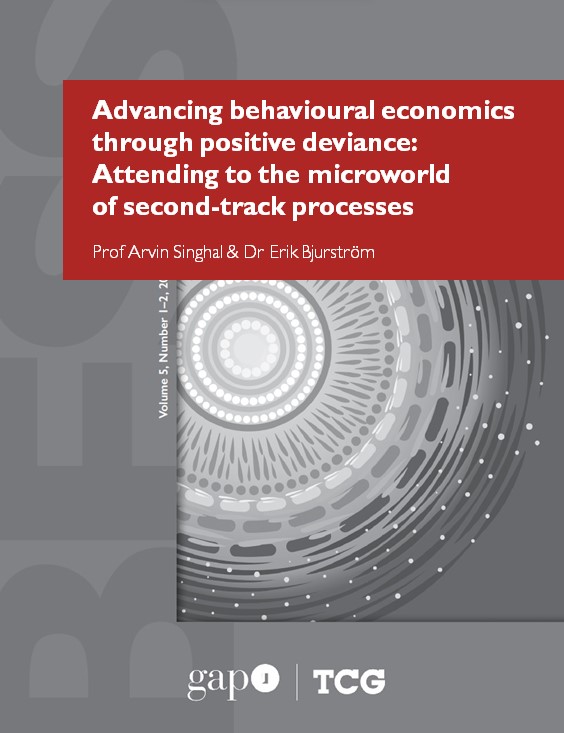Advancing behavioural economics through positive deviance: Attending to the microworld of second-track processes
DOI:
https://doi.org/10.54337/ojs.bess.v5i1.8136Abstract
Behavioral economists interested in solving wicked problems can benefit from a deeper understanding of positive deviance (PD), an approach for spreading innovations by identifying the novel and effective practices of positive outliers—those who have solved the problem against all odds. In this article, we contend that the PD approach (1) represents a vital condition of problem-solving using Second Track Processes, emphasizing conversation, coordination, and collaboration among multiple stakeholders, each accompanied by their lived realities, agendas and constraints; and (2) allows us to focus our attention on the microworld of human interaction—the local context where life is authentically thrashed out by partners and participants amidst complexity.

Downloads
Published
Issue
Section
License
Copyright (c) 2023 Prof Arvind Singhal, Dr Erik Bjurström

This work is licensed under a Creative Commons Attribution-NonCommercial-NoDerivatives 3.0 Unported License.
This journal provides immediate open access to its content on the principle that making research freely available to the public supports a greater global exchange of knowledge.
Articles published in BESS follow the license Creative Commons Attribution-NonCommercial-NoDerivs 3.0 Unported (CC BY-NC-ND 3.0)
Authors retain copyright and grant the journal right of first publication with the work simultaneously licensed under a Creative Commons Attribution License: Attribution - NonCommercial - NoDerivs (by-nc-nd).
Further information about Creative Commons




